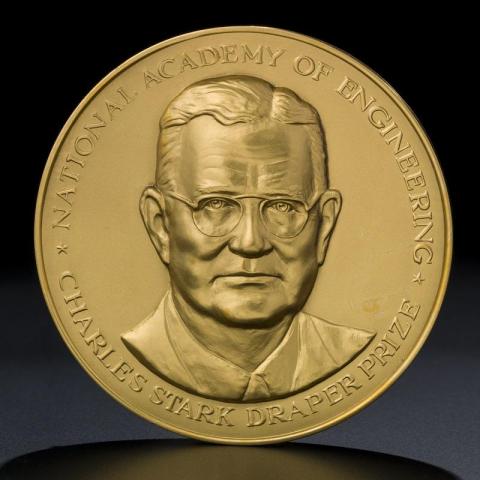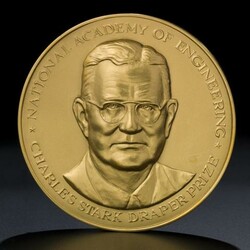Spintronics’ Pioneer Receives Draper Prize, Engineering’s Top Honor
CAMBRIDGE, Mass.—The digital information storage pioneer who laid the groundwork for today’s data-driven world will receive engineering’s highest honor during a Feb. 21 ceremony in Washington.
The National Academy of Engineering (NAE) will honor Dr. Stuart Parkin with the Charles Stark Draper Prize for Engineering, which biennially recognizes engineers whose accomplishments have significantly benefited society. This award is considered the Nobel Prize of engineering. The prize, which is in its 35th year, includes a $500,000 cash award, a commemorative medallion and a hand-scribed certificate.
In the mid-1990s, Parkin demonstrated a sensing device that detected the magnetic spin of electrons, making it possible to manufacture atomically-sized drives that could store and read thousands of times the amount of data as before. Spintronics technology opened the possibilities to construct devices with high storage density, low power consumption, and fast operation that are inexpensive and robust.
“Professor Stuart Parkin’s inventions in the field of spintronics have revolutionized computer technology, effectively making today’s information economy possible,” said Dr. Jerry M. Wohletz, president and CEO at Draper. “His innovations have transformed human access to data and enabled the ‘Big Data Revolution’—innovations worthy of the Draper Prize.
Spintronics, short for “spin transport electronics,” is a field that seeks to harness the natural spin of electrons to control a material’s magnetic properties. For an application like computing memory, in which magnetism is a key element, understanding and manipulating the power of spintronics has unlocked many new possibilities.
Dr. Parkin is an experimental physicist, director at the Max Planck Institute of Microstructure Physics in Halle, Germany, and an Alexander von Humboldt Professor at the Institute of Physics of the Martin Luther University Halle-Wittenberg, Germany. His research interests include spintronic materials and devices for advanced sensor, memory and logic applications, oxide thin-film heterostructures, topological metals, exotic superconductors and cognitive devices.
The market for spintronic materials and devices, an important feature in computers, smart phone, storage units, MP3/MP4 players and the Internet, is projected to reach nearly $1.4 billion by 2033, according to Future Market Insights.
The Charles Stark Draper Prize was established and endowed in 1988 at the request of Draper in tribute to its founder, Dr. Charles Stark Draper, who pioneered inertial navigation.
Recognized as one of the world’s pre-eminent awards for engineering achievement, the Draper Prize honors an engineer whose accomplishment has significantly impacted society by improving the quality of life, providing the ability to live freely and comfortably and permitting the access to information. Previous winners over the past 35 years include the inventors of the mobile phone and supporting infrastructure, the World Wide Web, GPS, and the turbojet engine.
Released January 3, 2024

